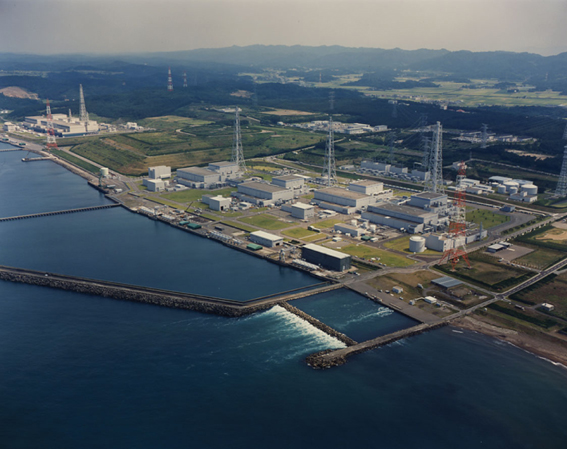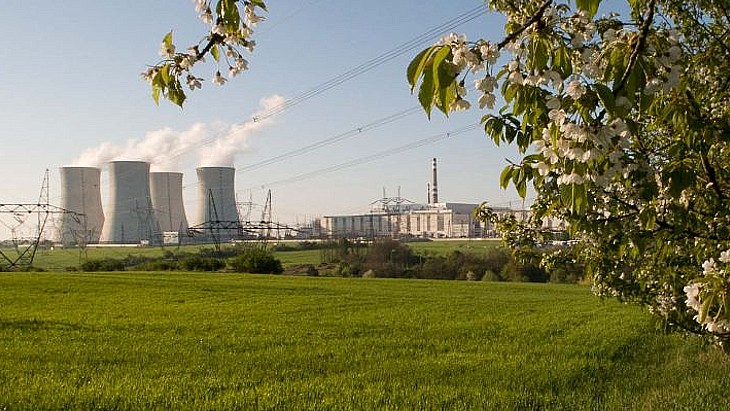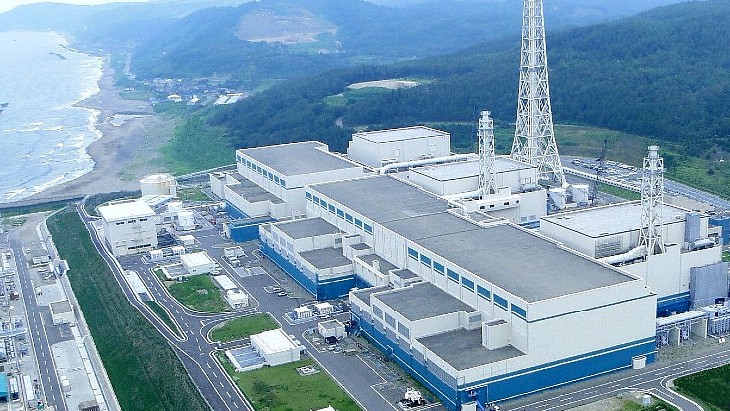Japan's Nuclear Regulation Authority (NRA) has today approved a draft report that concludes units 6 and 7 of Tokyo Electric Power Company's (Tepco's) Kashiwazaki-Kariwa nuclear power plant meet the country's new safety standards. The draft document has now been released for public comment and could be formally approved by year-end.
 |
| Kashiwazaki-Kariwa (Image: Tepco) |
Tepco filed for safety assessments of Kashiwazaki-Kariwa 6 and 7 in September 2013. The company submitted information on safety upgrades across the site, in Niigata Prefecture, and at those two reactor units that it claims meet new regulatory requirements. Kashiwazaki-Kariwa 6 and 7 - 1356 MWe Advanced Boiling Water Reactor units built in the late 1990s - were the first Japanese boiling water reactors (BWRs) to be put forward for restart.
At a meeting today, the NRA's five commissioners unanimously voted to approve a draft assessment of the units' safety. Following a period of public consultation, the NRA is expected to officially certify the restart of the units.
The draft report estimates maximum ground shaking at Kashiwazaki-Kariwa could reach 1209 Gal, while the maximum height of a tsunami would be around 8.3 meters. The document mandates a number of safety measures to be taken at the site. These include seismic reinforcements and construction of a seawall. It also lists measures to be taken to prevent a serious accident in the event of the loss of on-site power. Under the new safety requirements, BWRs must be equipped with filtered venting systems.
Kashiwazaki-Kariwa was unaffected by the March 2011 earthquake and tsunami which damaged the Fukushima Daiichi plant, although the plant's reactors were previously all offline for two to three years following the 2007 Niigata-Chuetsu earthquake, which caused damage to the site but did not damage the reactors themselves. While the units were offline, work was carried out to improve the plant's earthquake resistance.
As well as the damaged Fukushima Daiichi plant, Tepco also owns the Fukushima Daini and Kashiwazaki-Kariwa nuclear power plants. Today's approval marks the first time Tepco has received informal certification for any of its reactors meeting the revised safety standards.
Tepco said it will "continue to work diligently and transparently" to comply with the NRA inspections.
Although it has completed work at the other idled units at Kashiwazaki-Kariwa, Tepco is concentrating its resources on units 6 and 7 while it deals with the clean-up at Fukushima Daiichi. Restarting those two units would increase the company's earnings by an estimated JPY100 billion ($890 million) per year.
However, the reactors are likely to remain offline for a few years longer. The governor of Niigata Prefecture, Ryuichi Yoneyama, has said he will not discuss their restart until Tepco has completed a review into the accident at Fukushima Daiichi, a process expected to take up to four years. The mayor of Kashiwazaki, Masahiro Sakurai, has also called for at least one of the plant's seven reactors to be decommissioned as a precondition to the restart of units 6 and 7.
Researched and written
by World Nuclear News




_53514_33880.jpg)


_91467.jpg)





